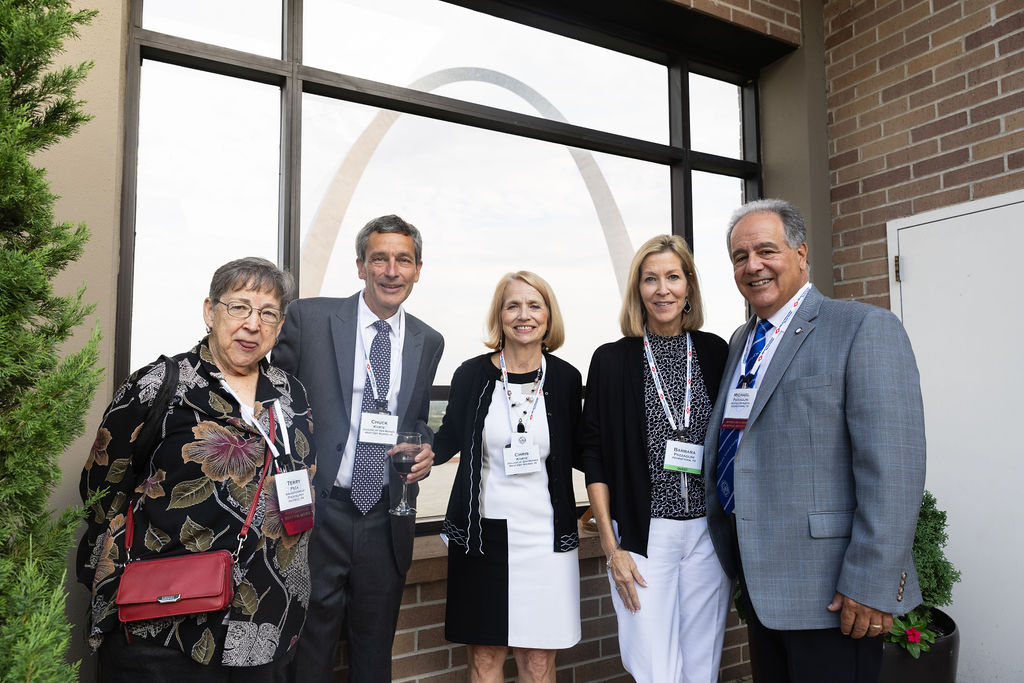
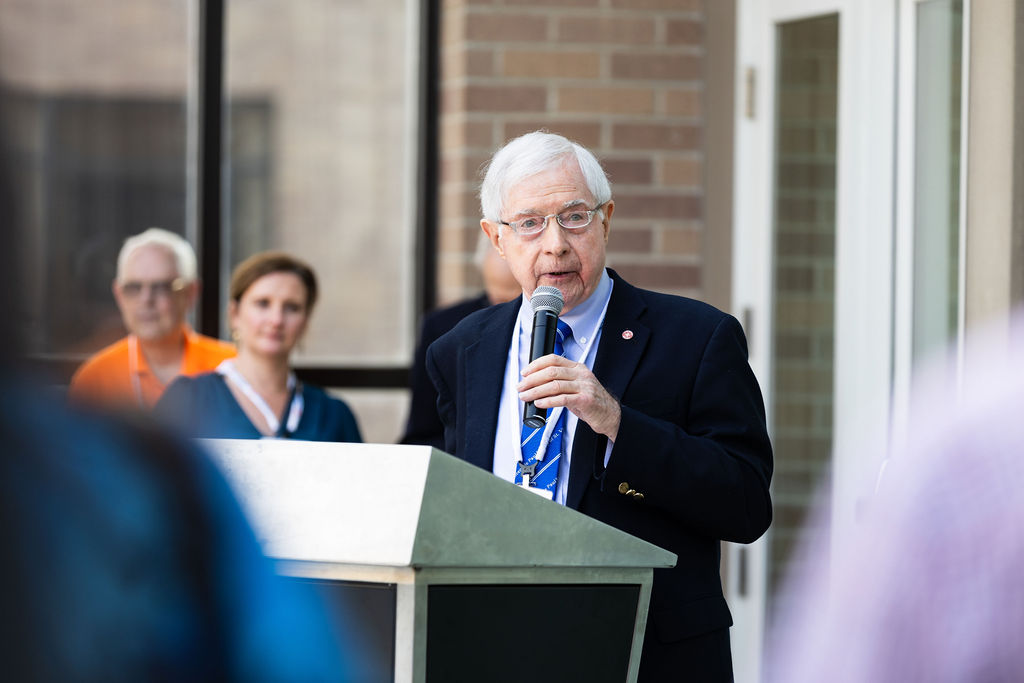
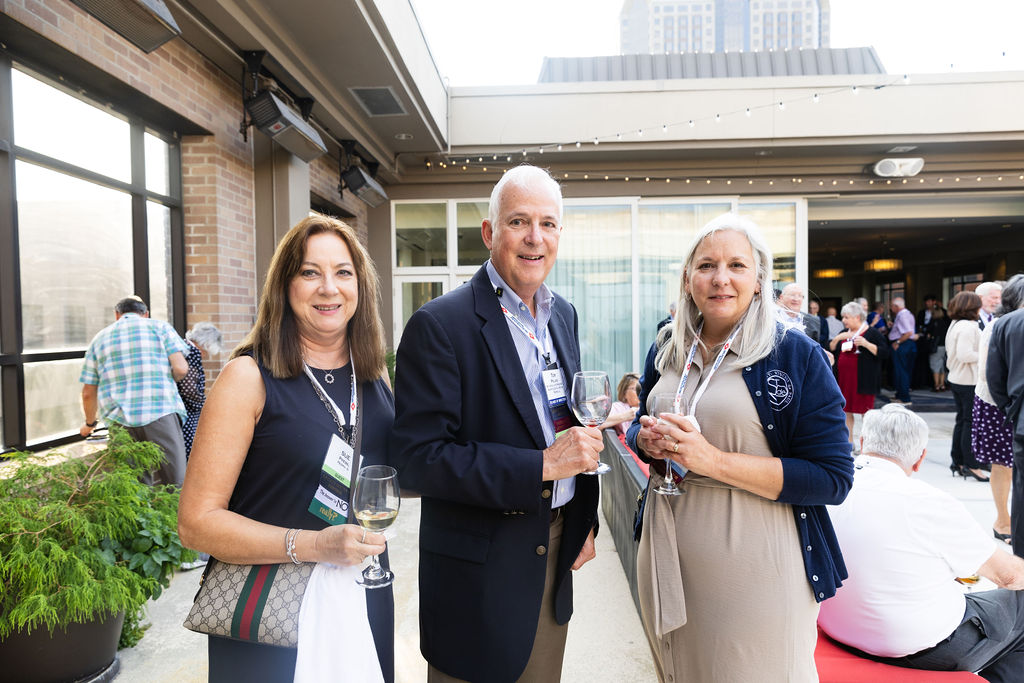
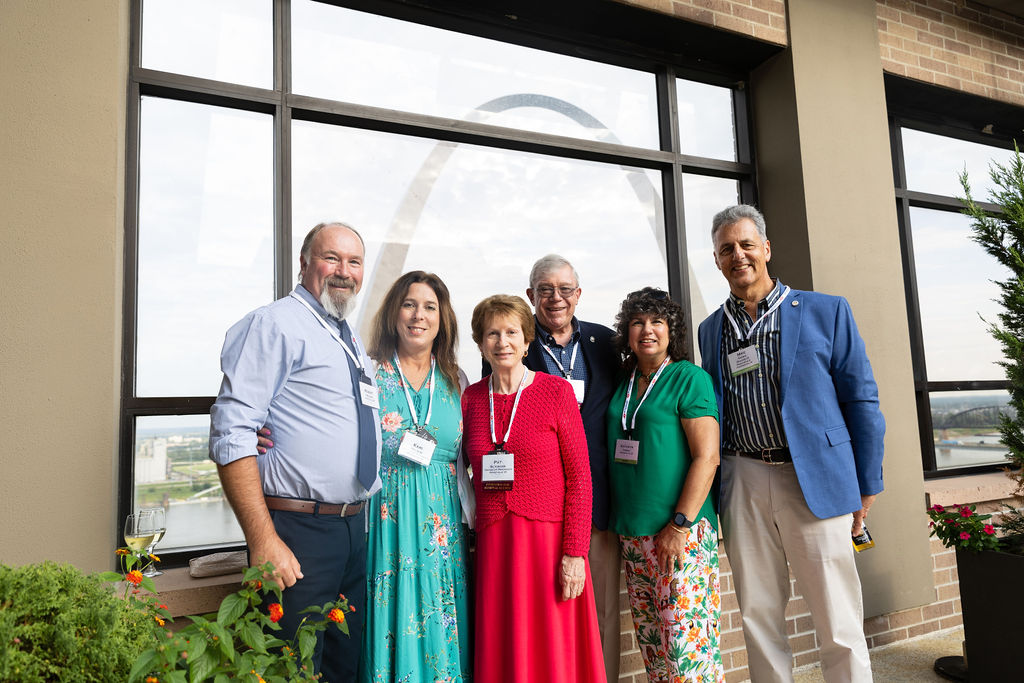
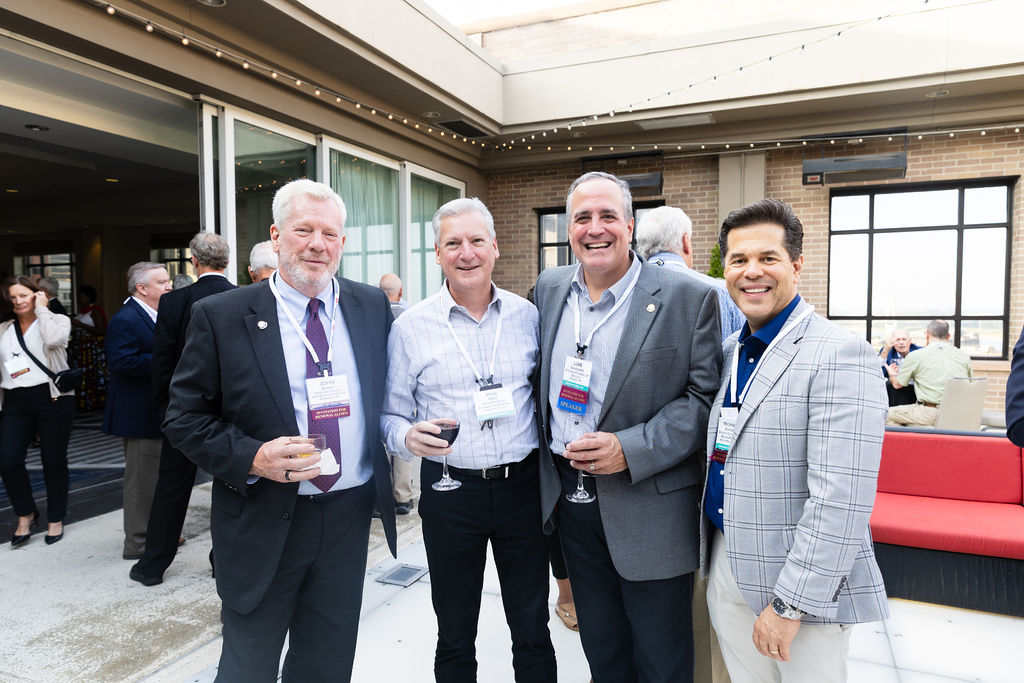
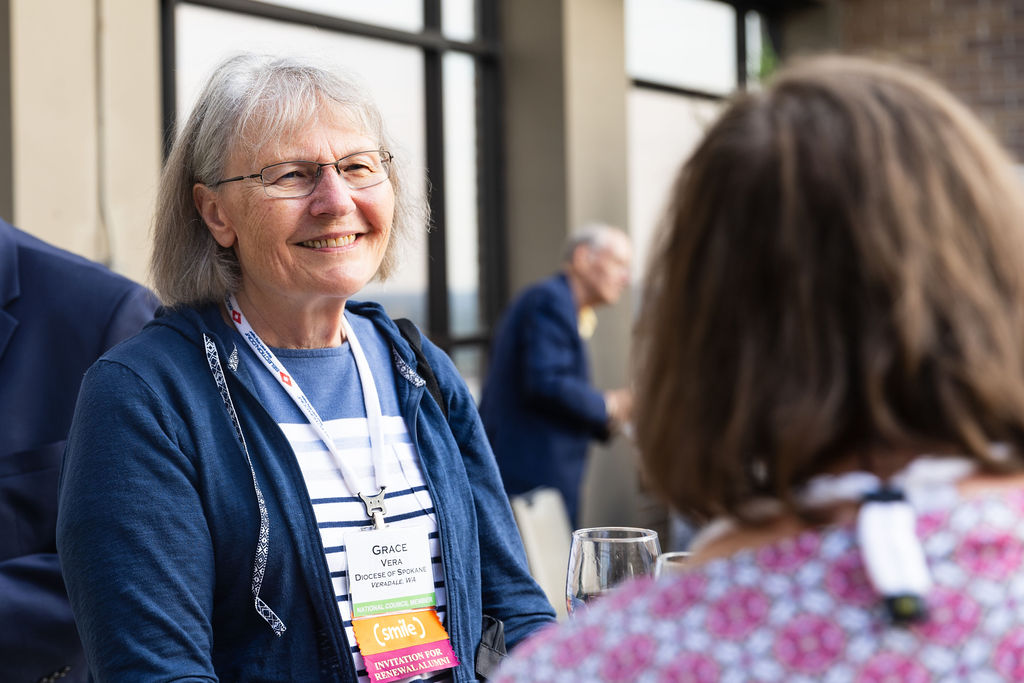
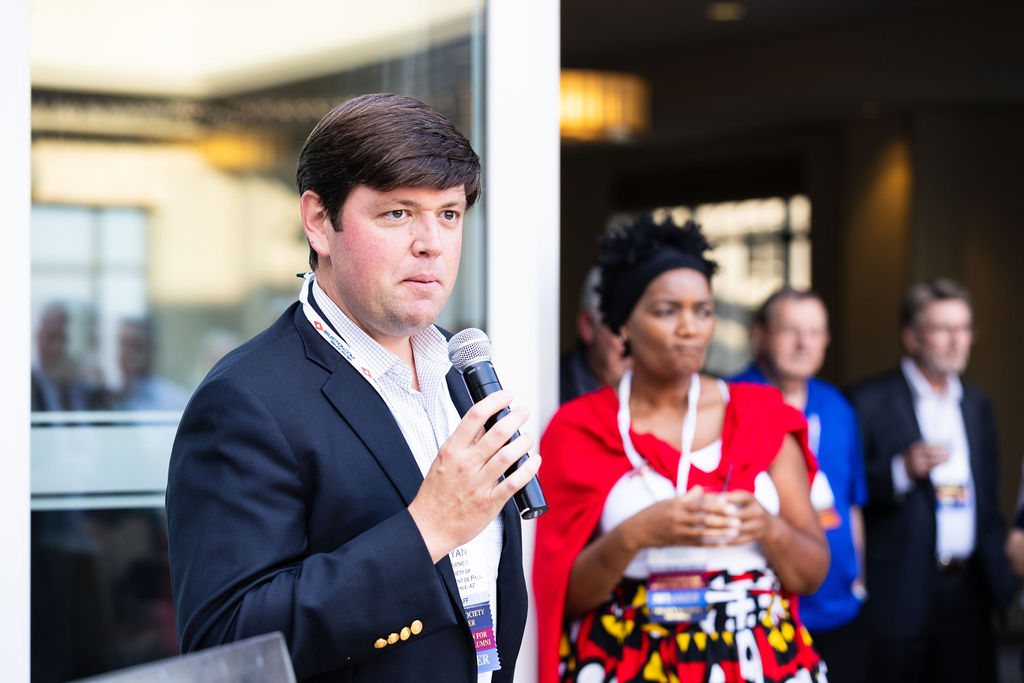
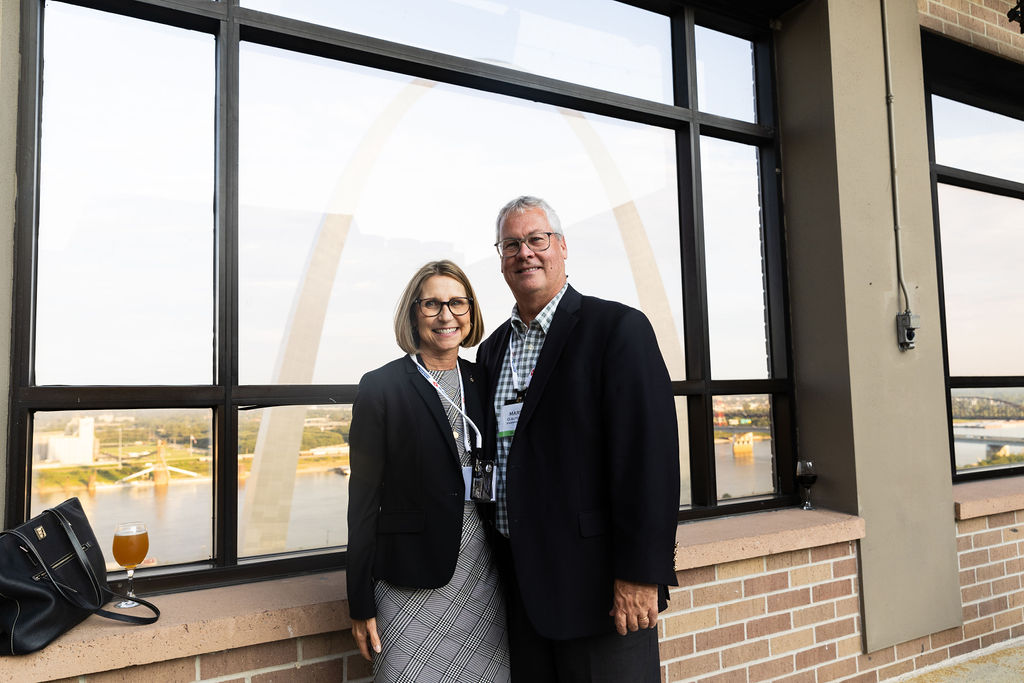
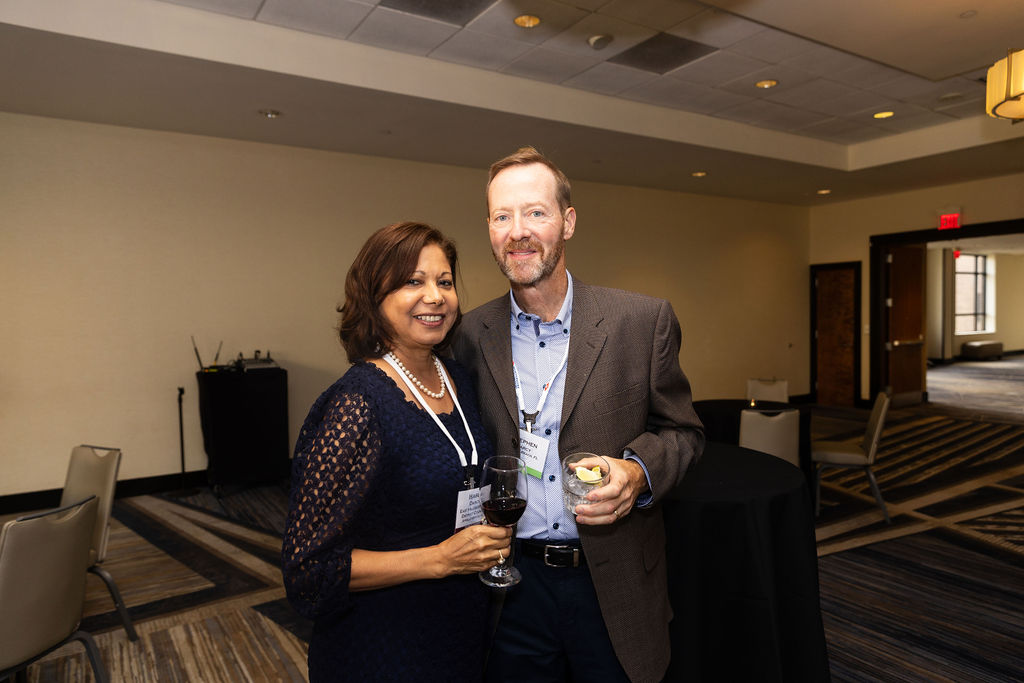
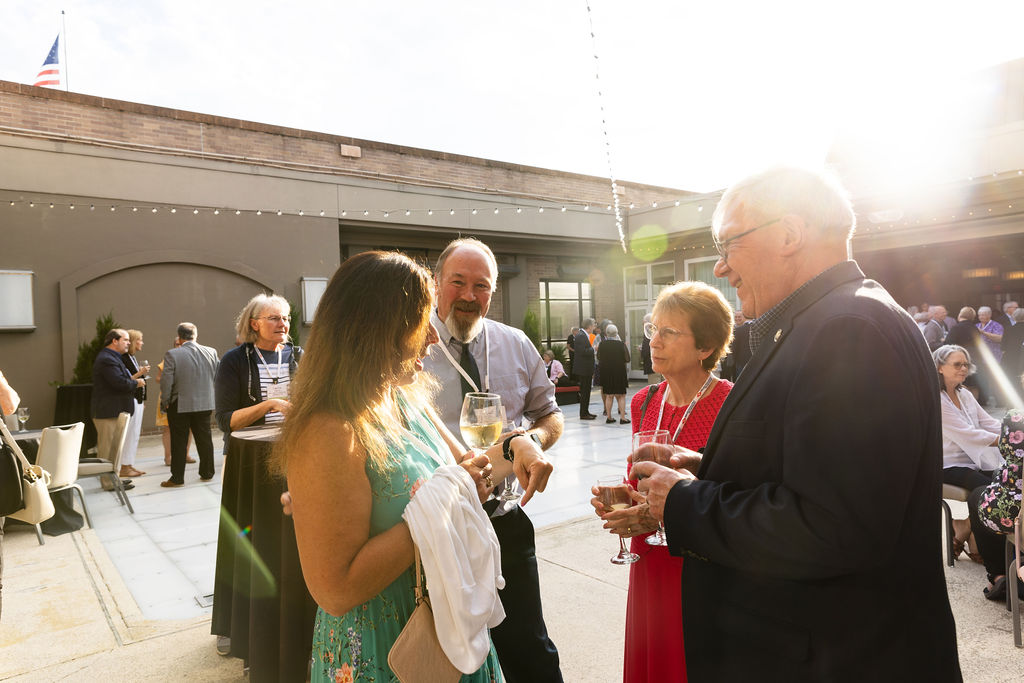










At the Society of St. Vincent de Paul’s recent National Assembly in St. Louis, the SVdP National Foundation honored former National President Deacon Gene Smith with the Founder’s Award.
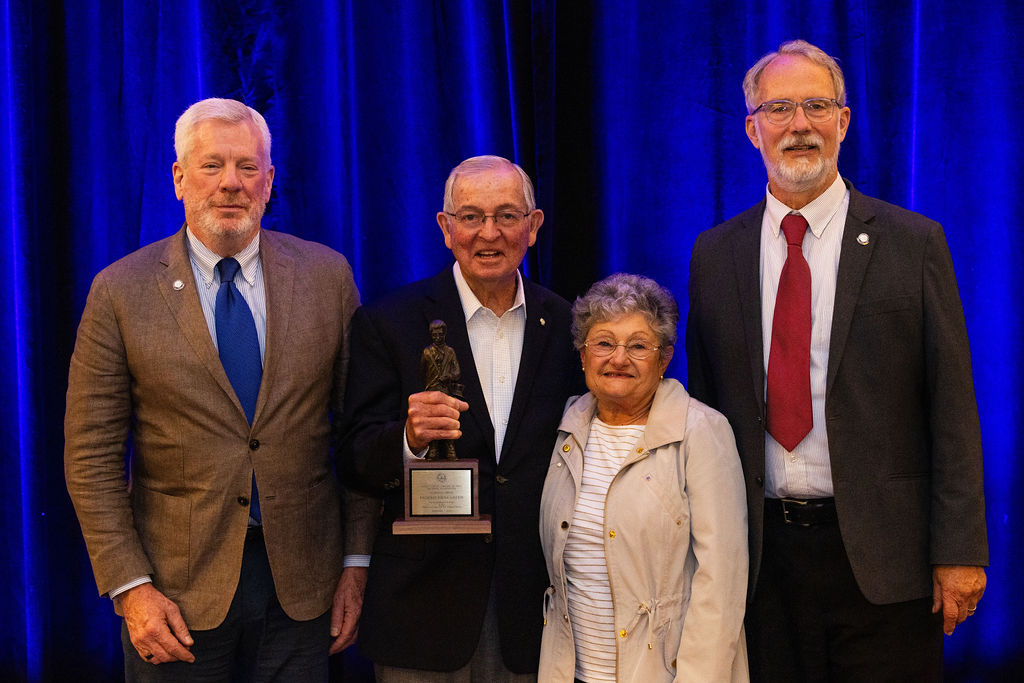 The National Foundation works to support the work of the National Council and strengthens the Vincentian network of charity through financial support and other endeavors. Their award recognizes Smith’s exceptional service and outstanding contributions to the National Council of the United States, Society of St. Vincent de Paul.
The National Foundation works to support the work of the National Council and strengthens the Vincentian network of charity through financial support and other endeavors. Their award recognizes Smith’s exceptional service and outstanding contributions to the National Council of the United States, Society of St. Vincent de Paul.
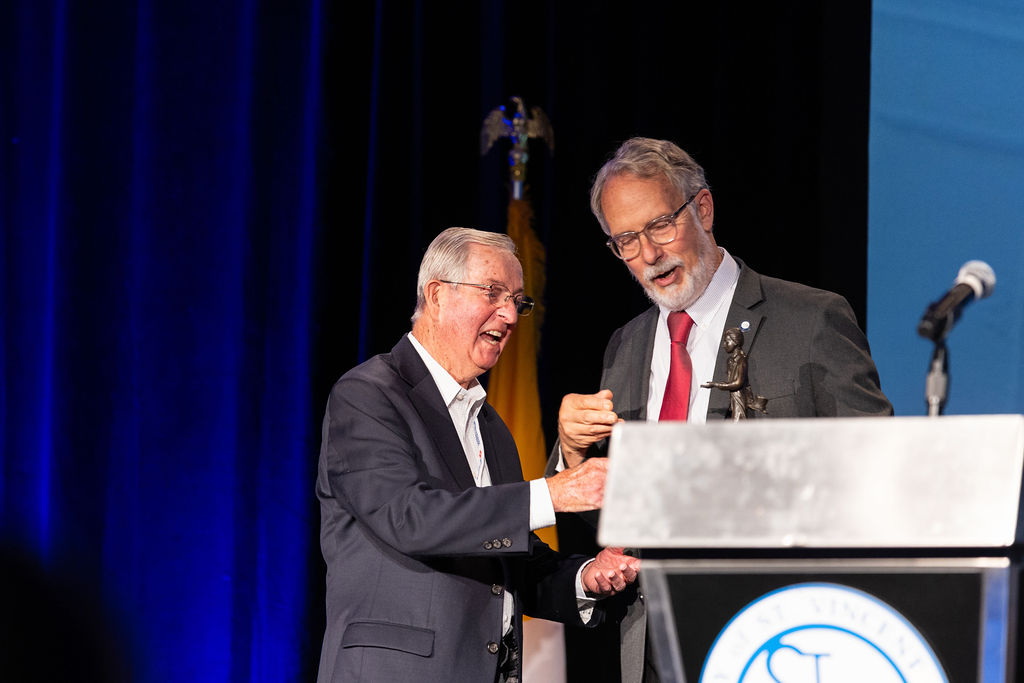 Smith served a six-year term as National President from 1999 to 2005. Among the hallmarks of his presidency, Smith let the Society through its first strategic plan, and helped implement the Society’s first formal mission statement. He also oversaw establishment of the Voice of the Poor Committee, developed “to uphold Catholic social teaching by researching, validating, documenting, advocating, and promulgating issues related to the condition of the poor and disenfranchised.”
Smith served a six-year term as National President from 1999 to 2005. Among the hallmarks of his presidency, Smith let the Society through its first strategic plan, and helped implement the Society’s first formal mission statement. He also oversaw establishment of the Voice of the Poor Committee, developed “to uphold Catholic social teaching by researching, validating, documenting, advocating, and promulgating issues related to the condition of the poor and disenfranchised.”
Congratulations, Gene! We thank you for your service and devotion to the Society.
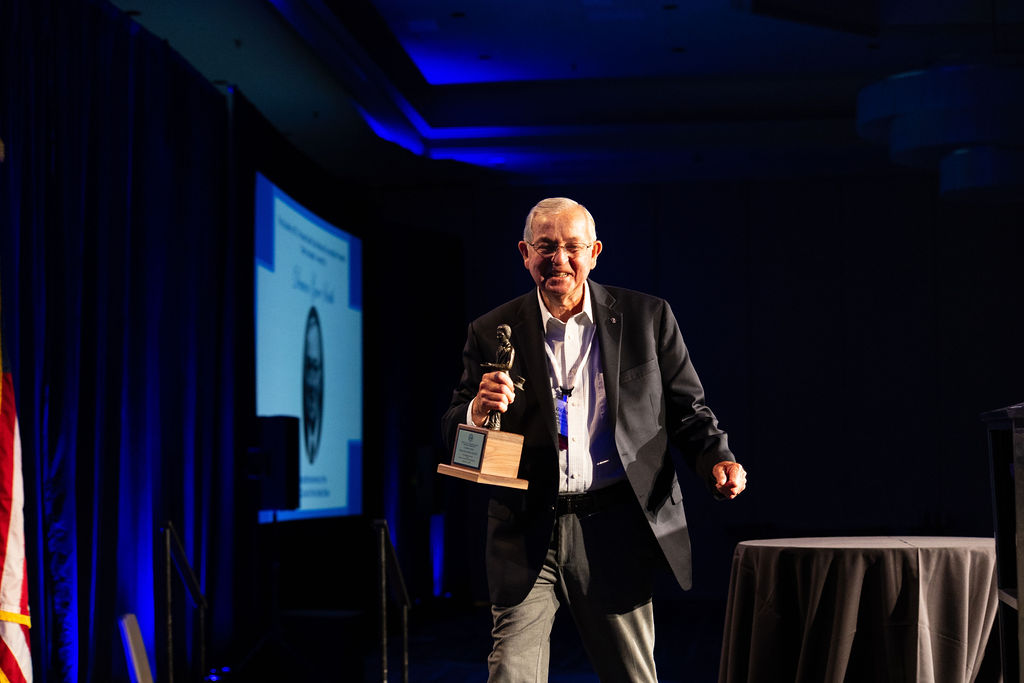
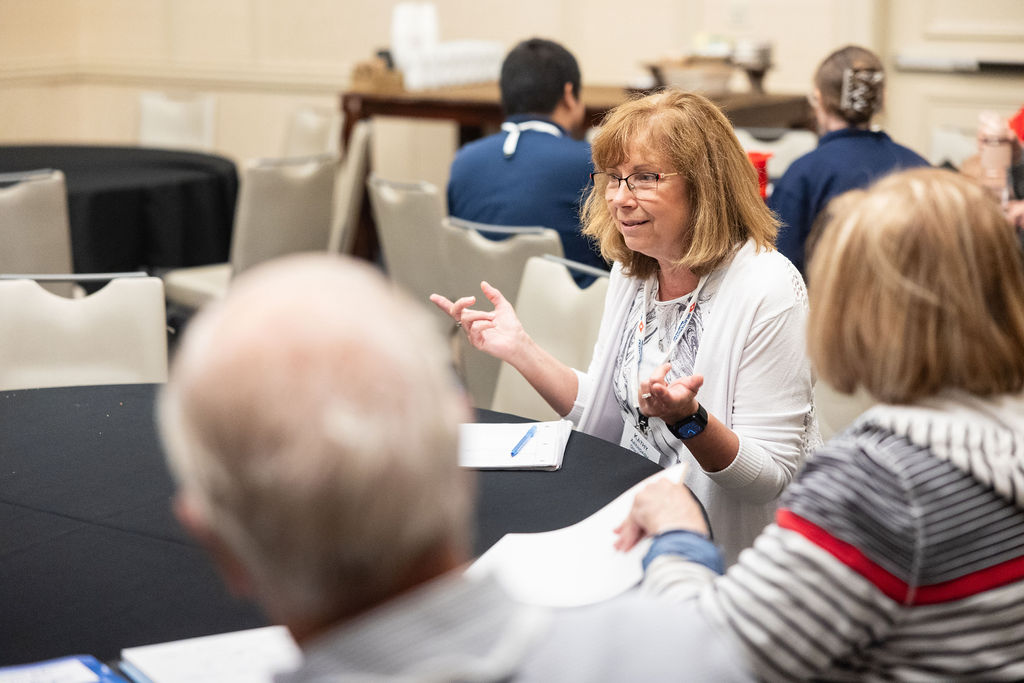
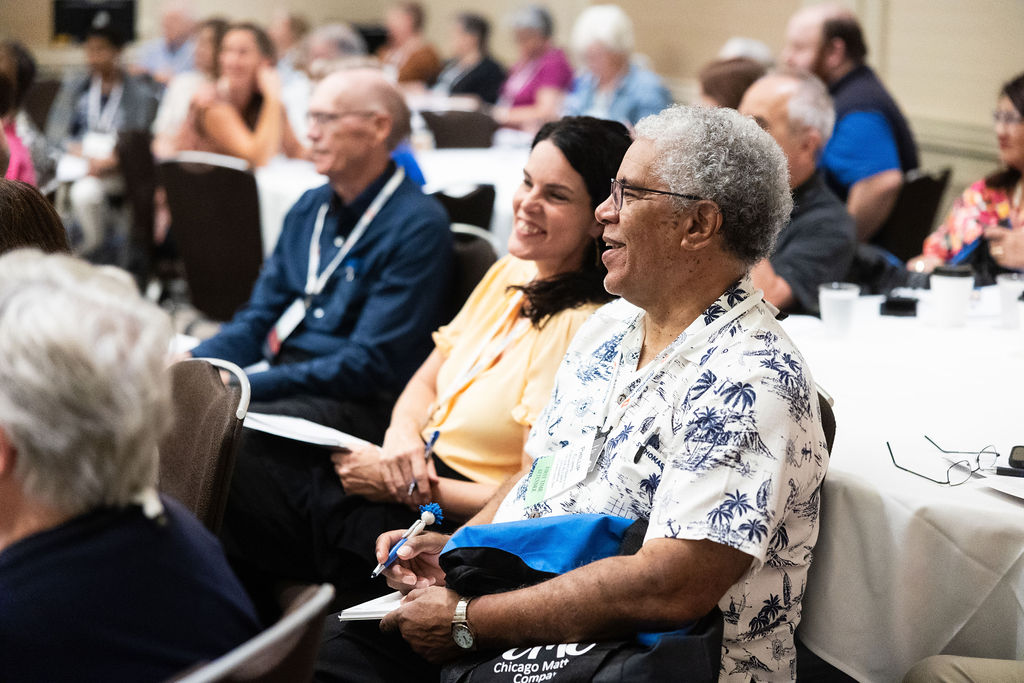
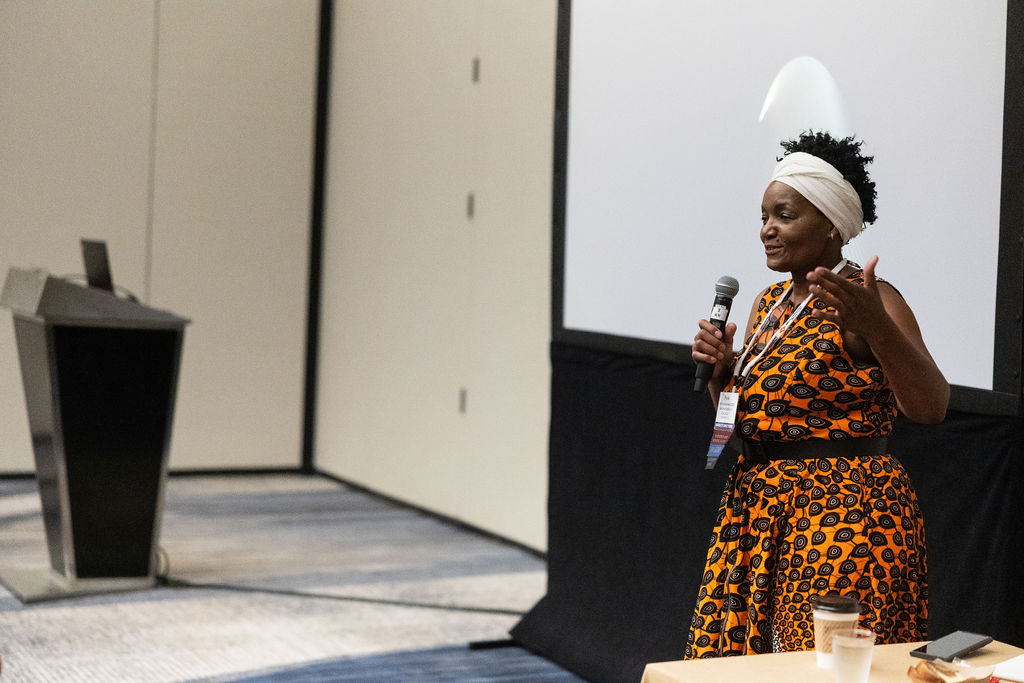
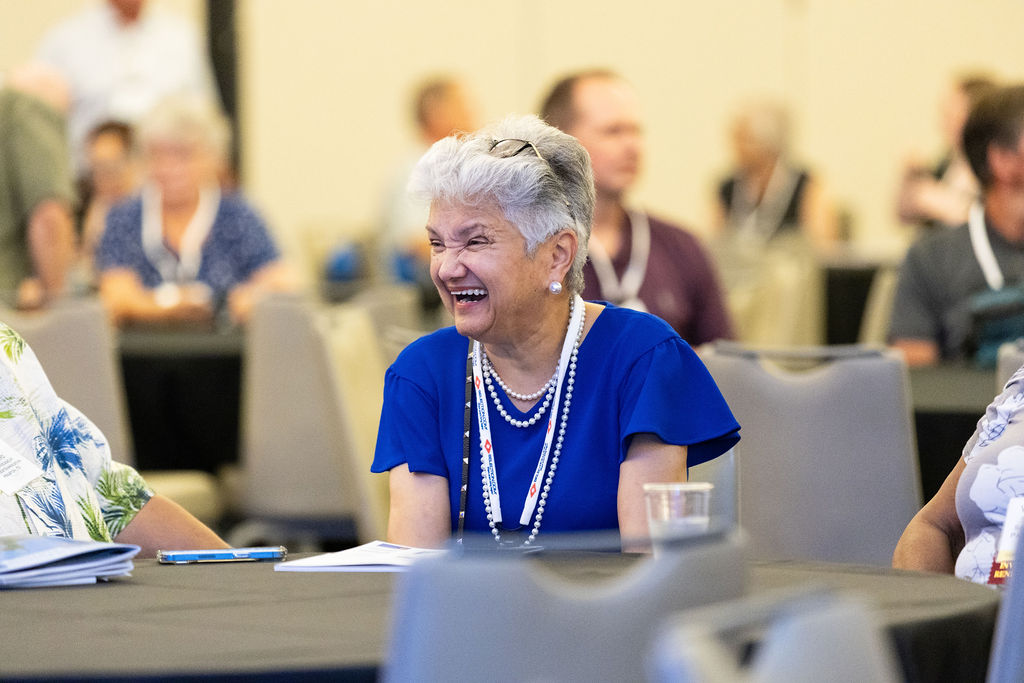
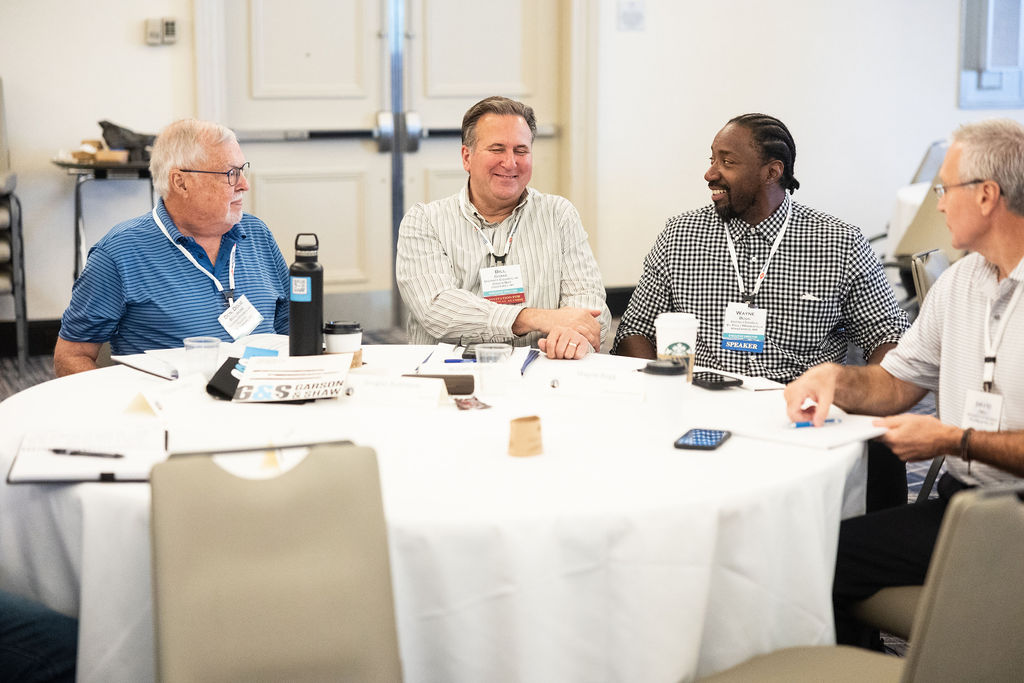
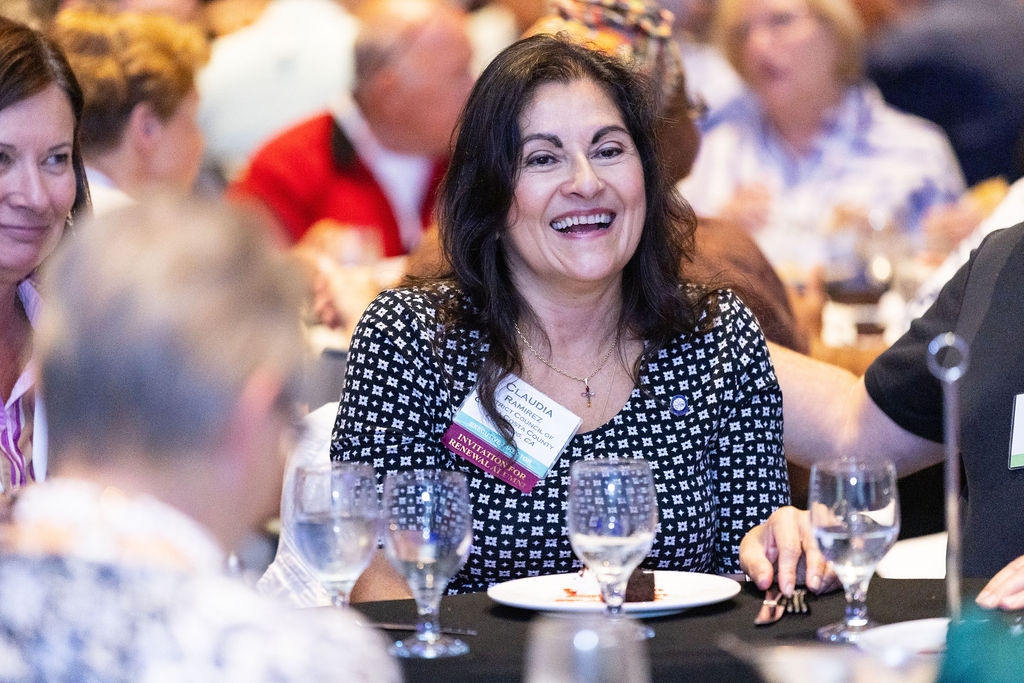
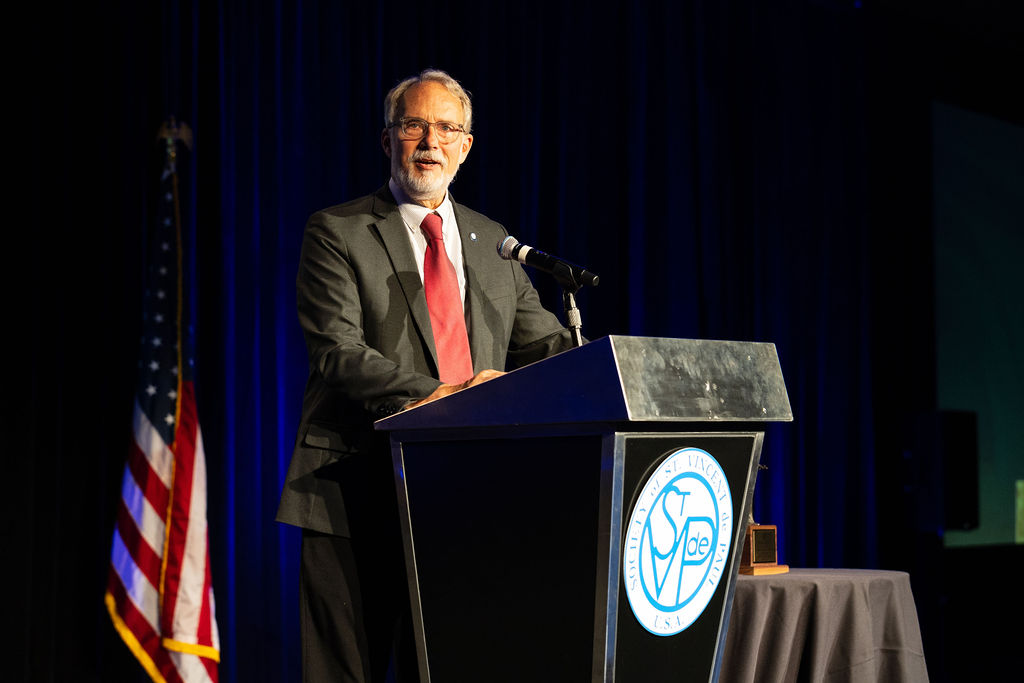
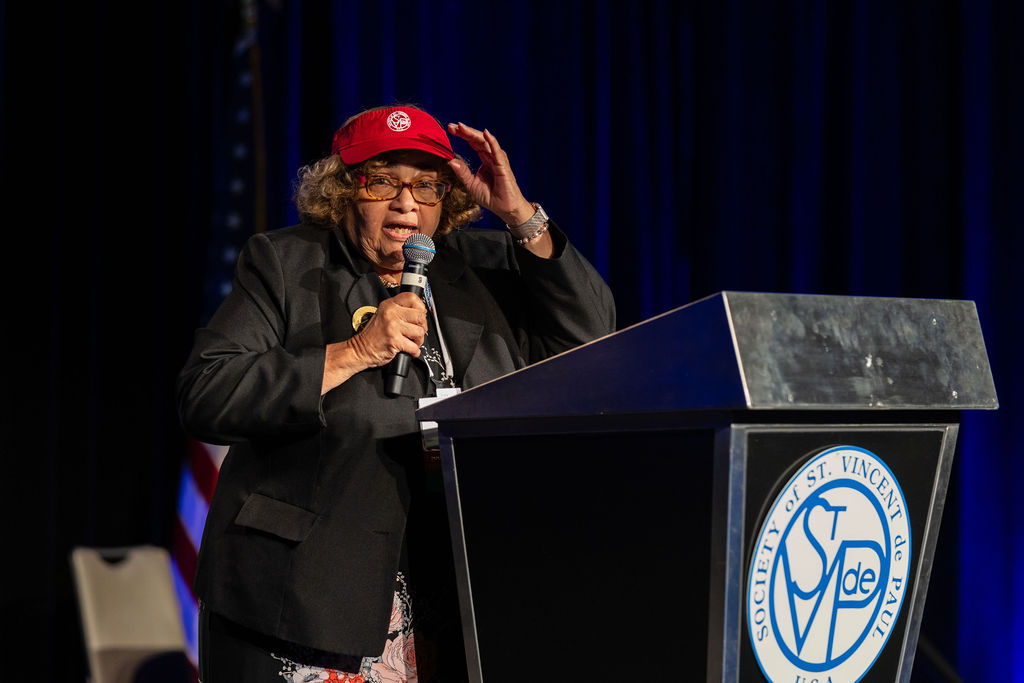
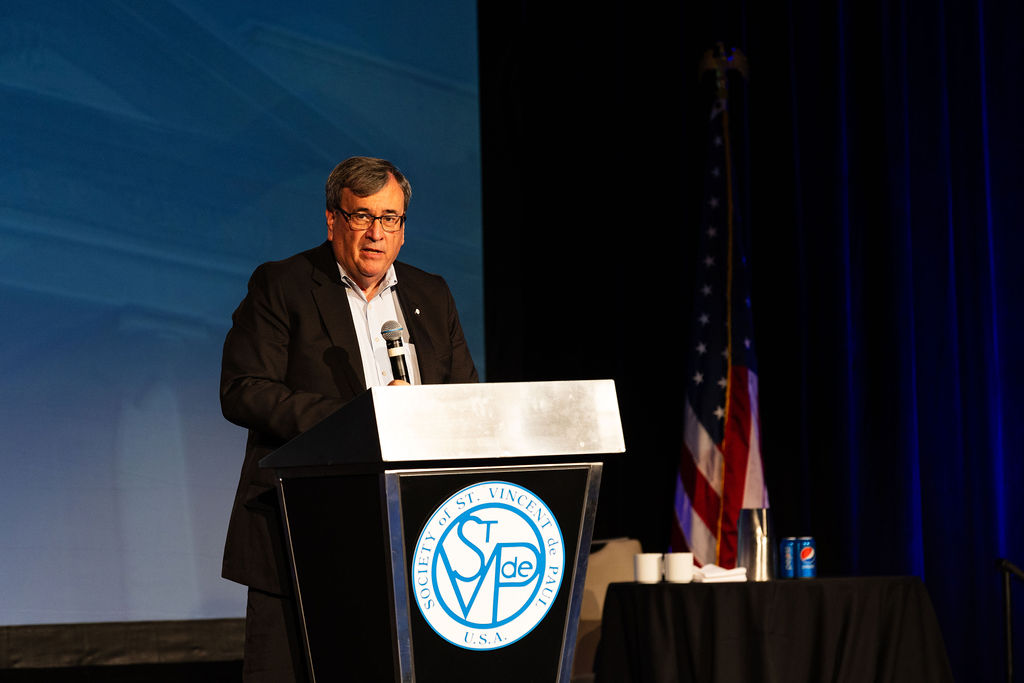
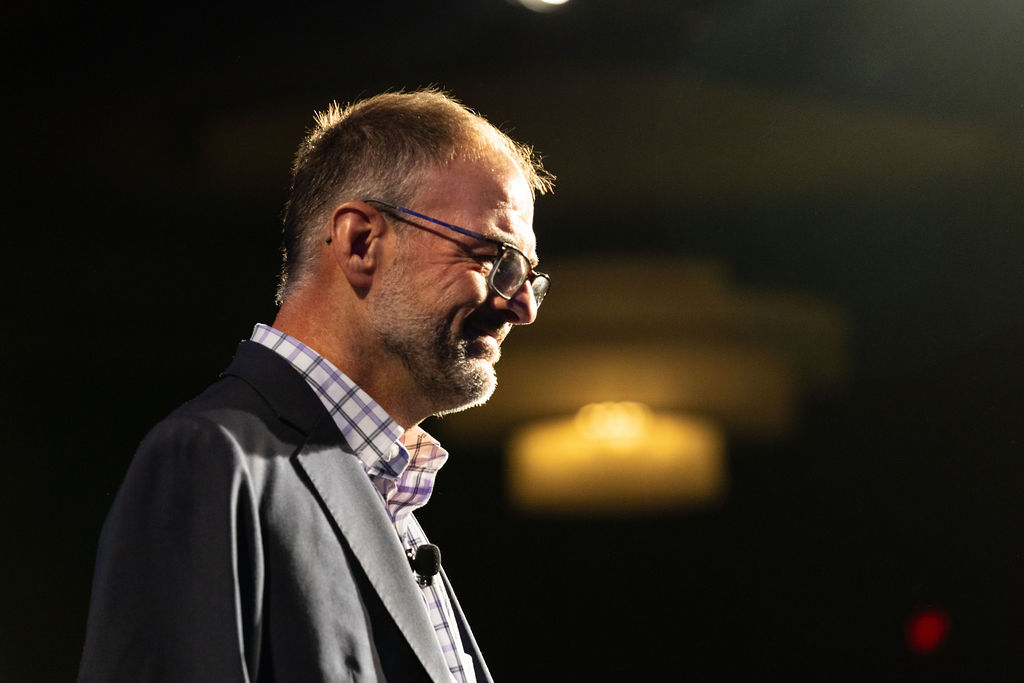
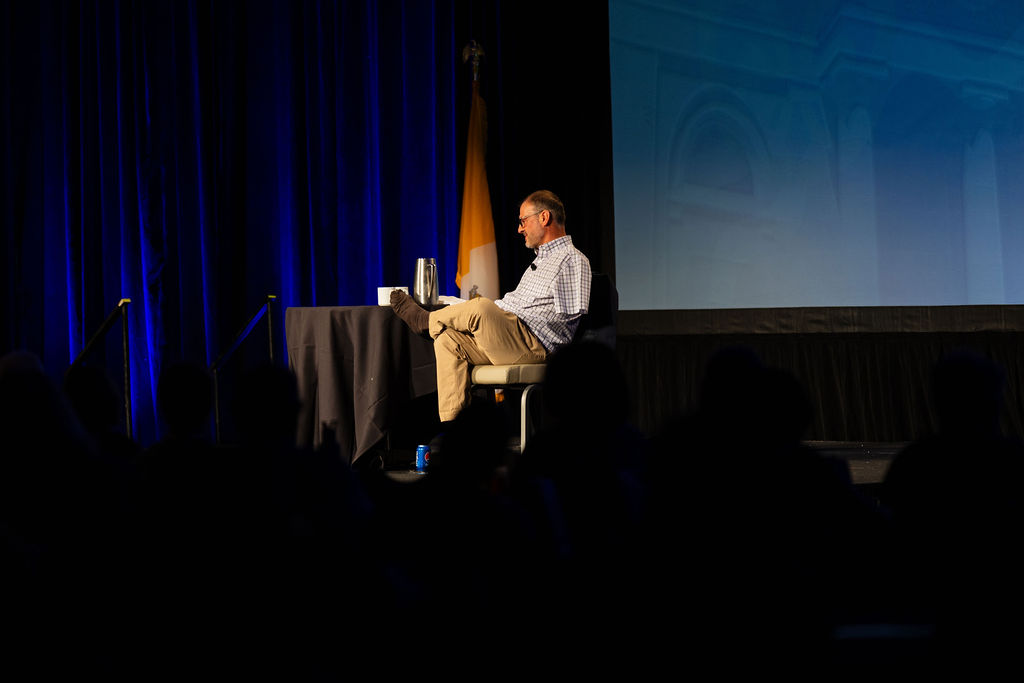
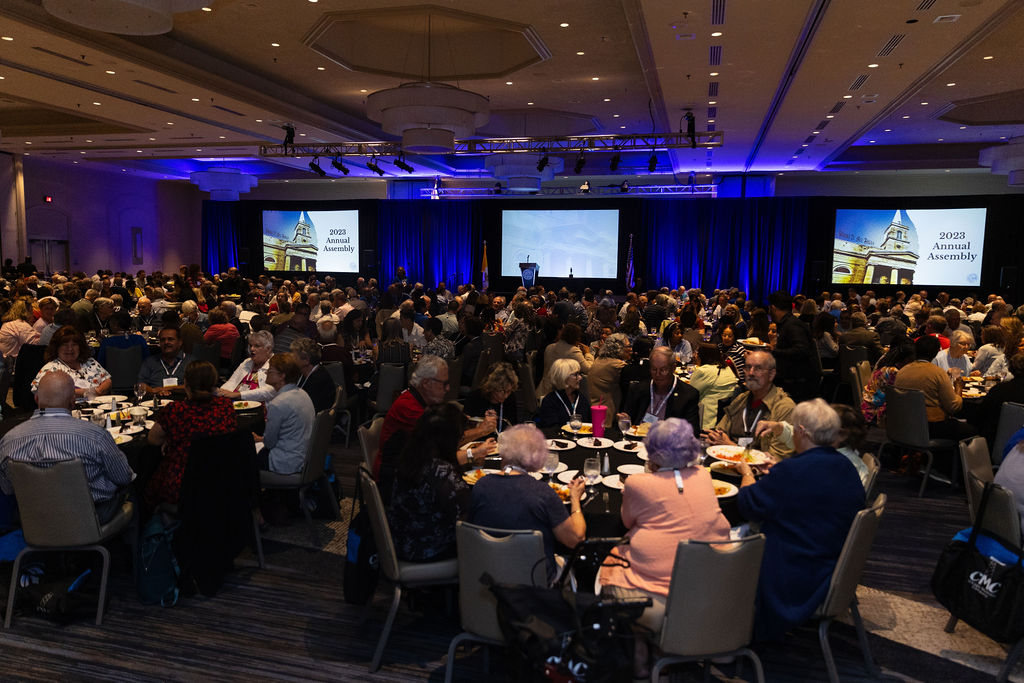
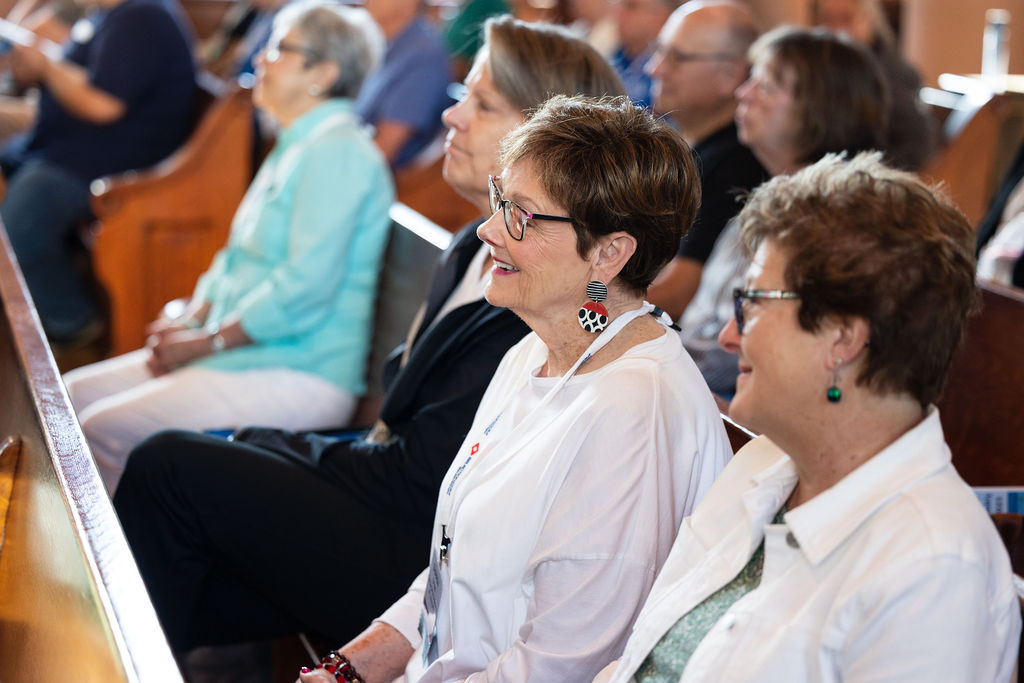
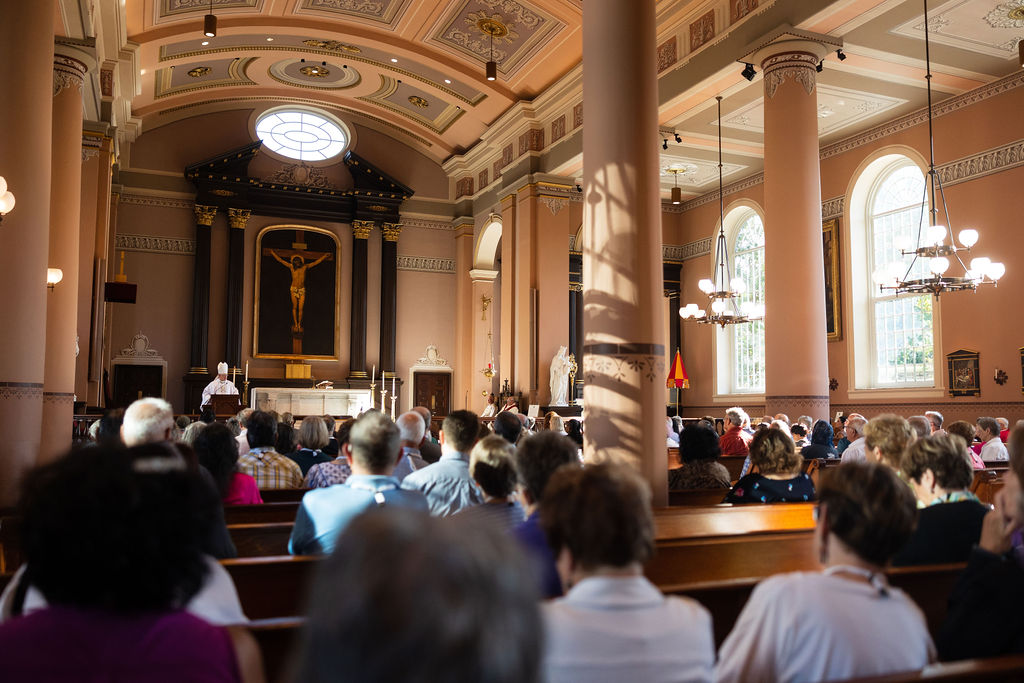
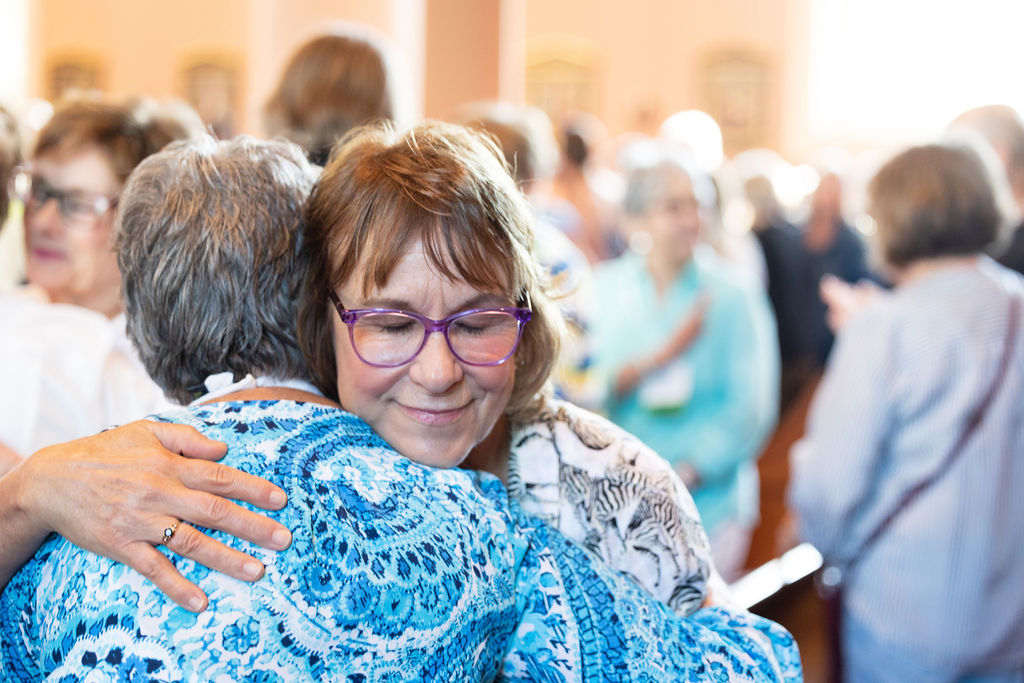
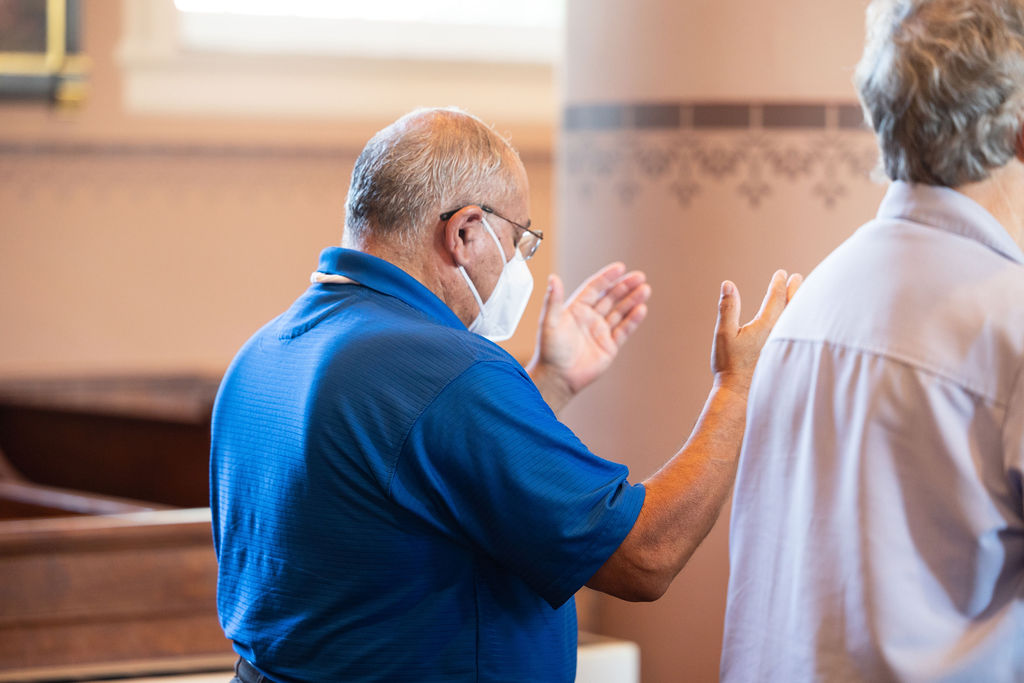
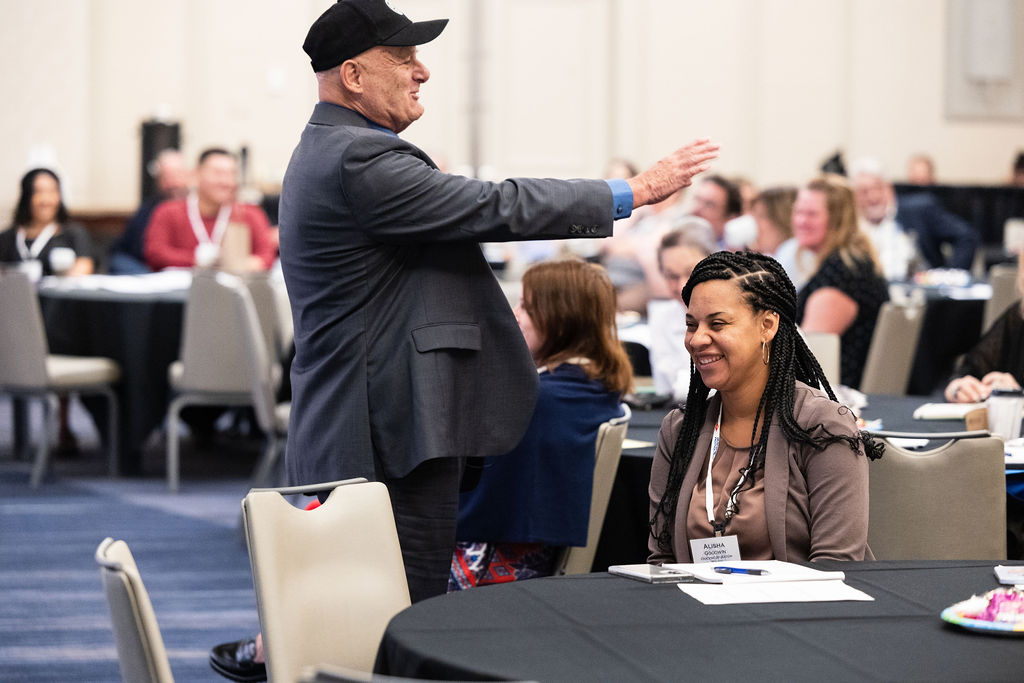
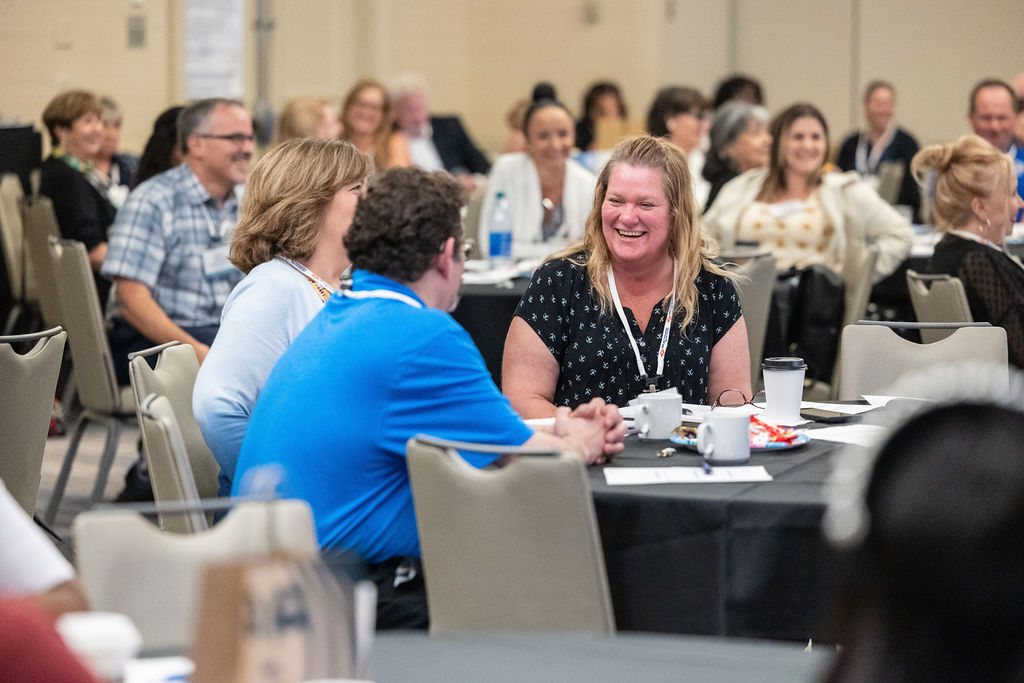
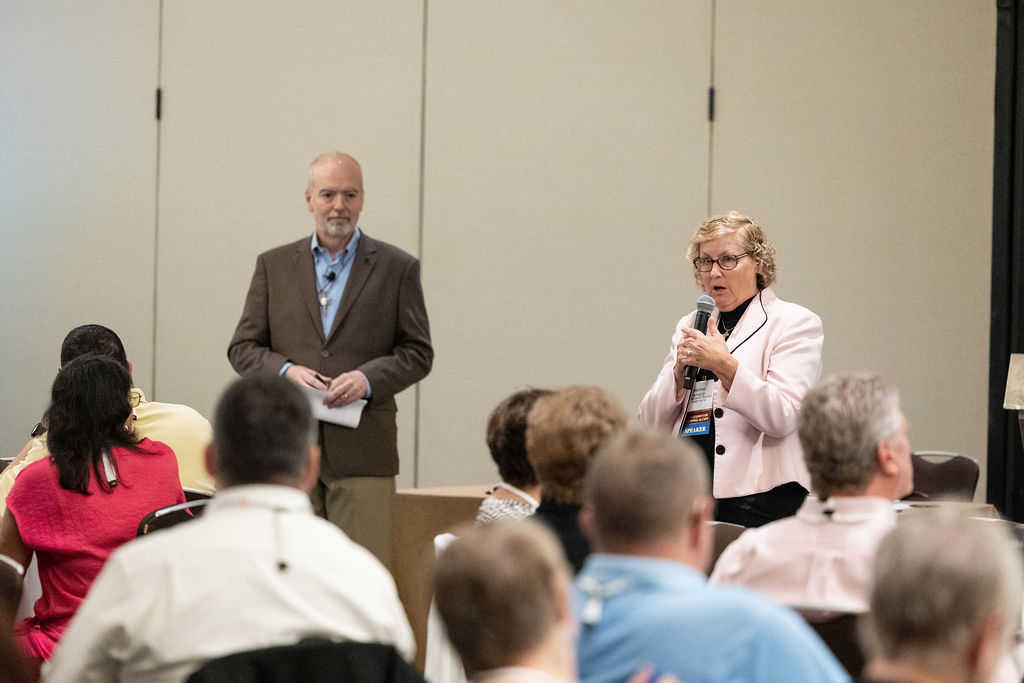
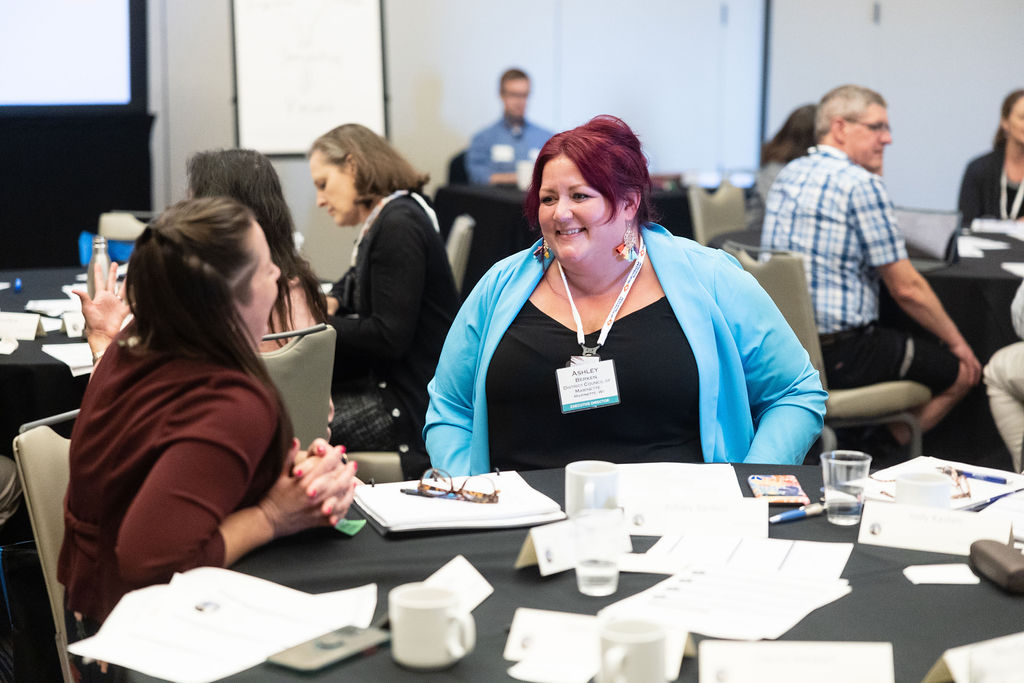
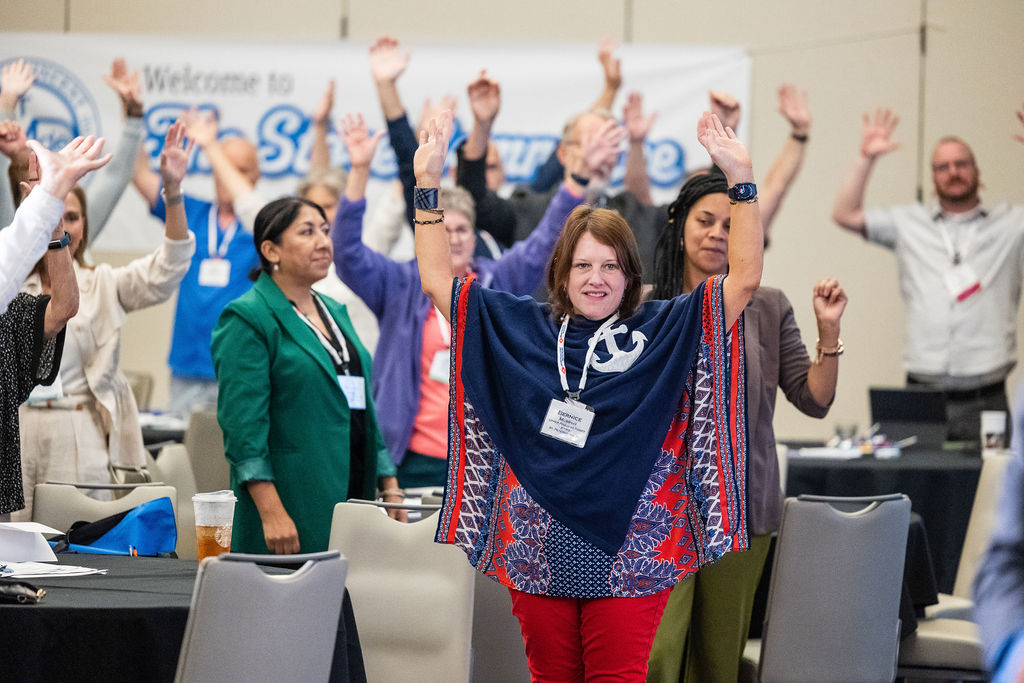
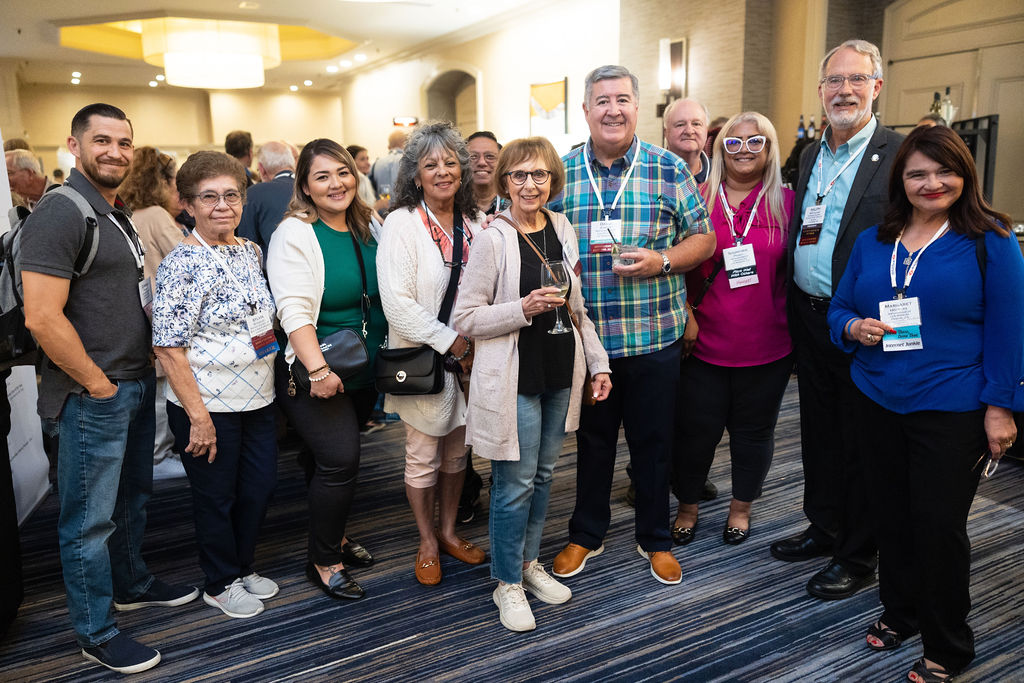
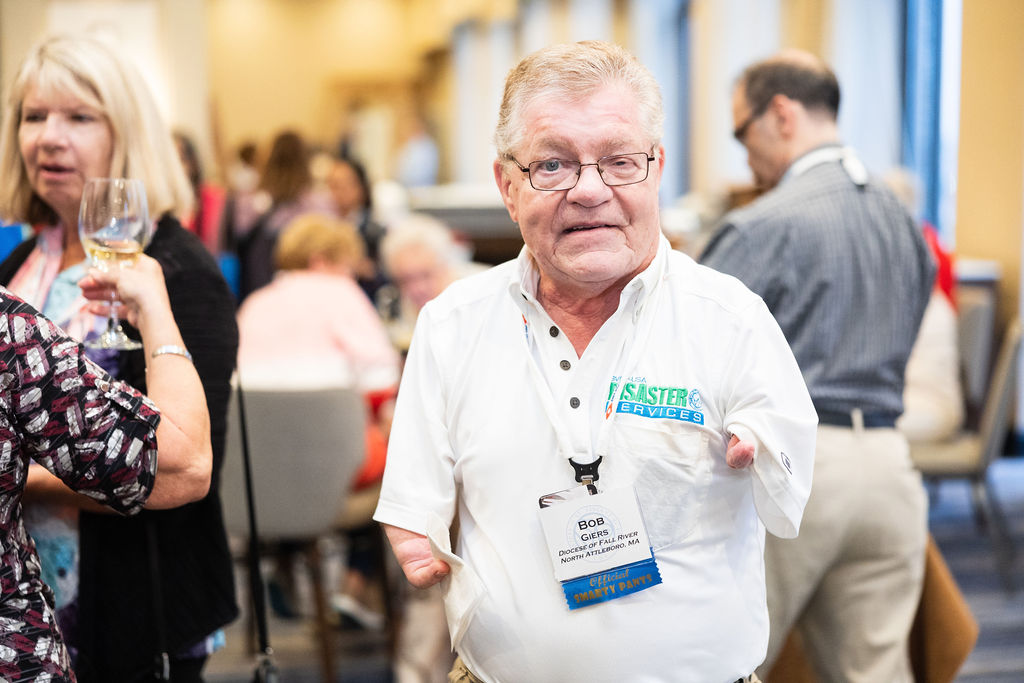
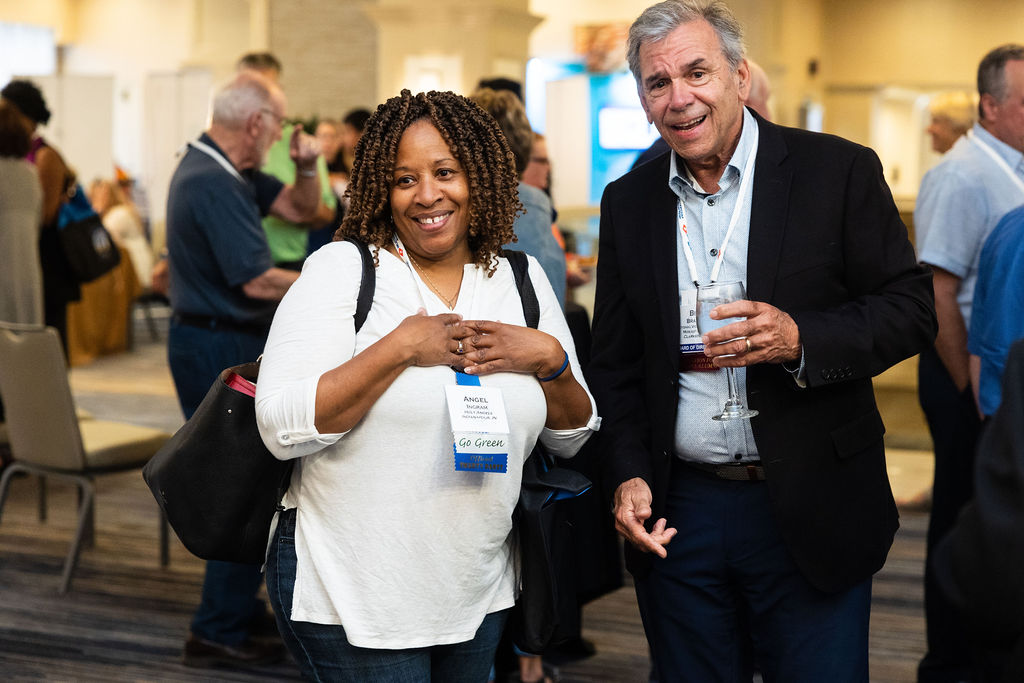
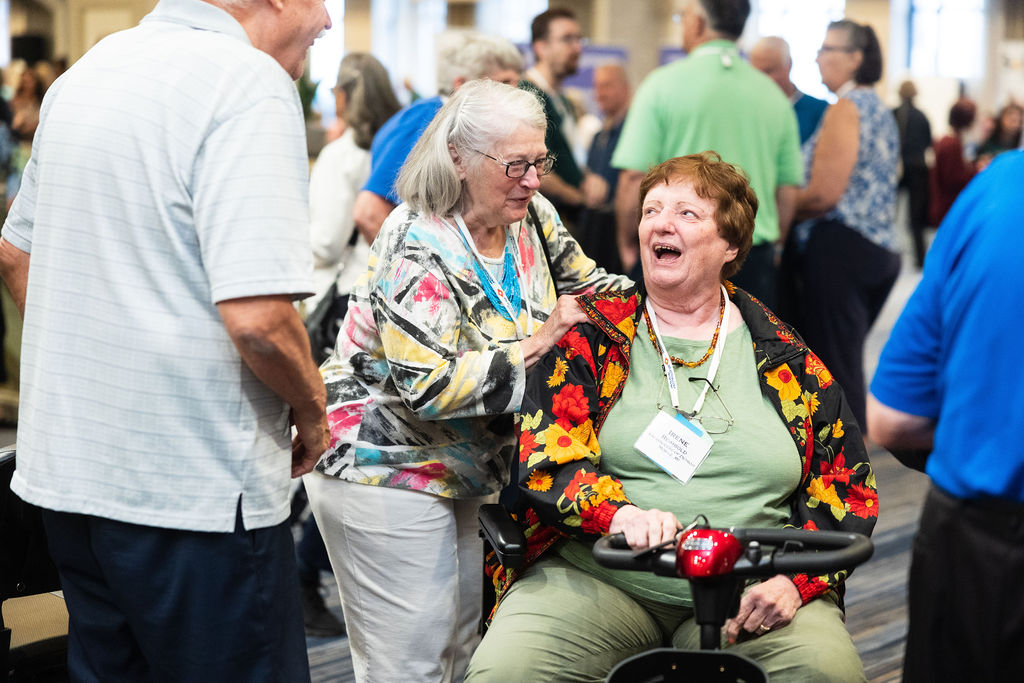
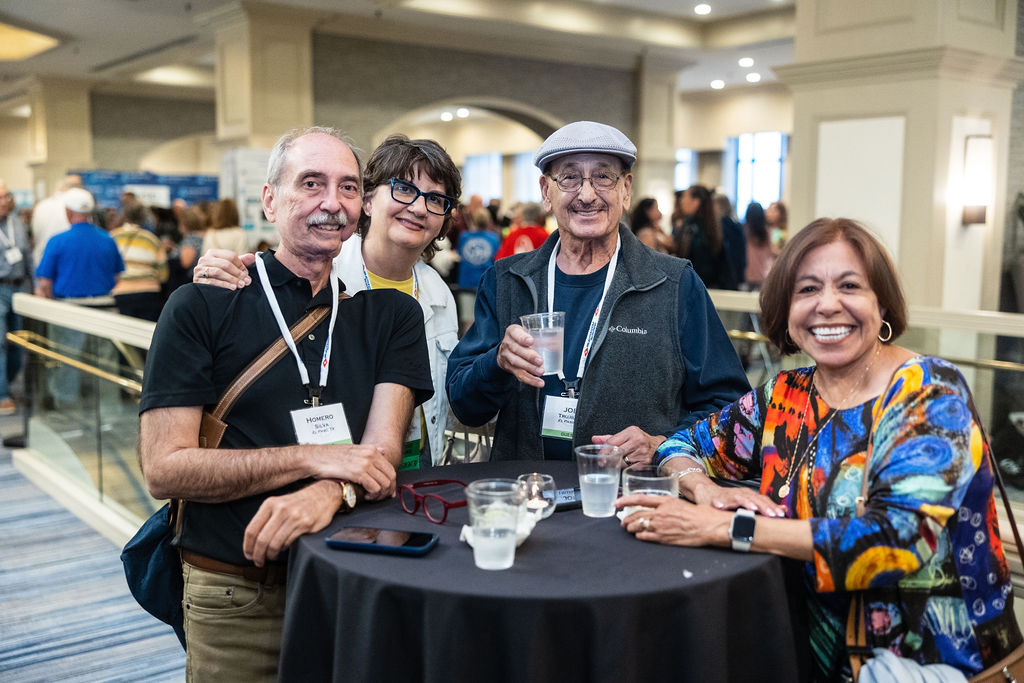
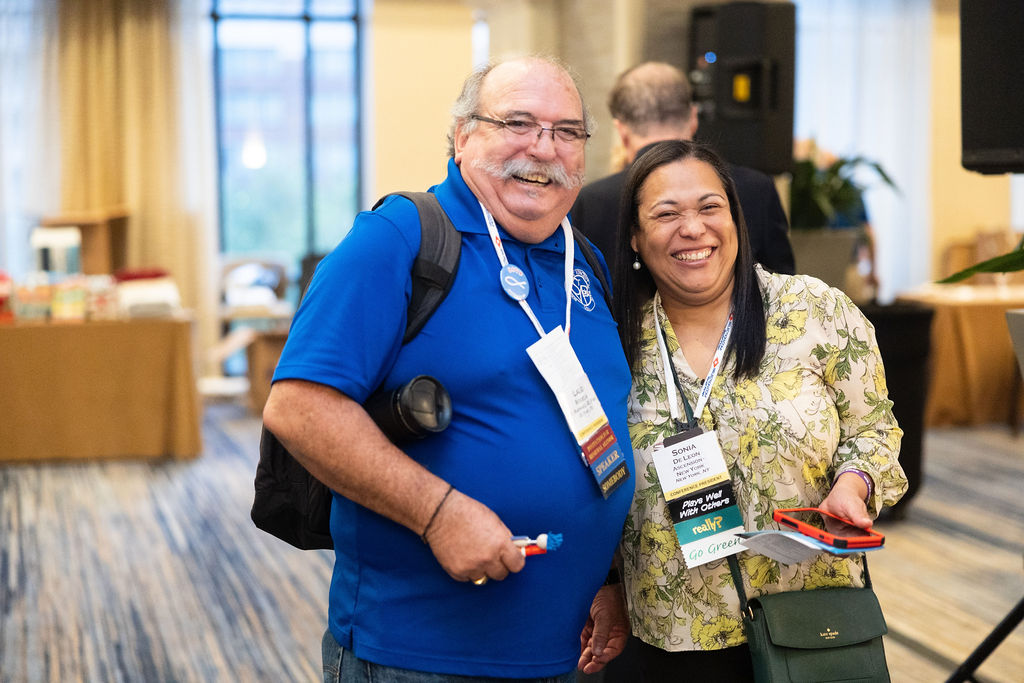
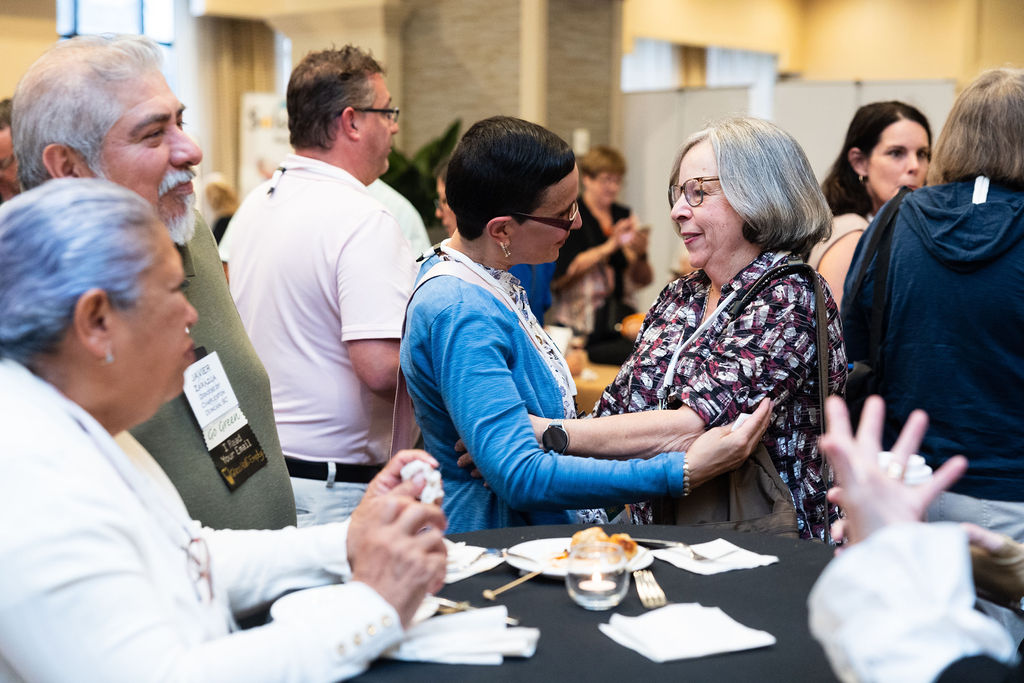
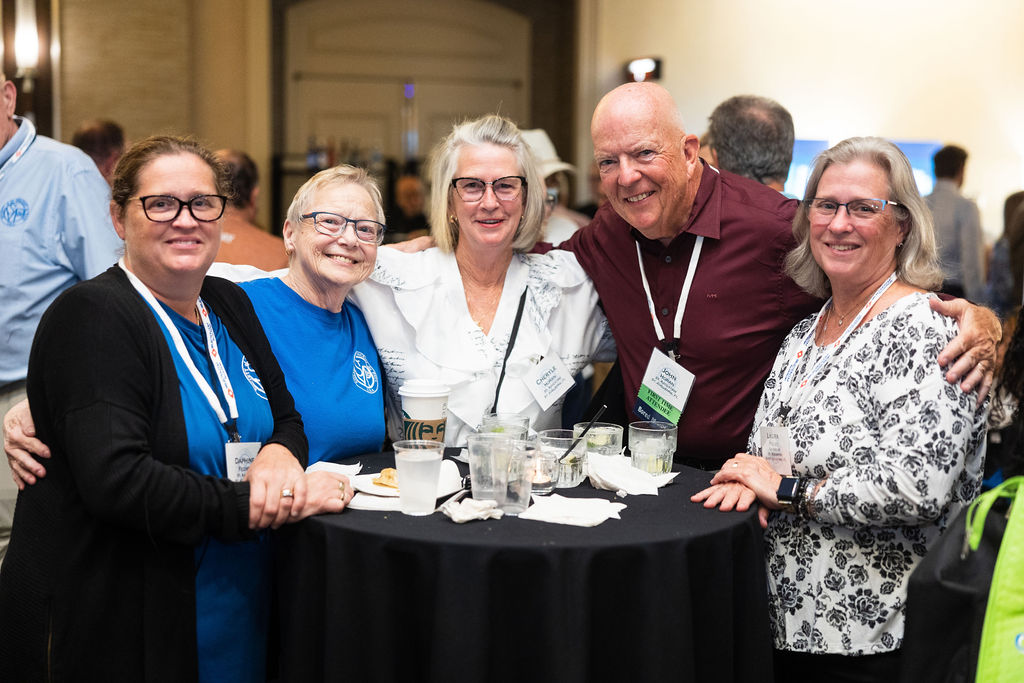
Outgoing National President of the Society of St. Vincent de Paul Ralph Middlecamp was recently honored with a special video tribute commemorating his time in office. Colleagues and friends shared memories and reflected on Ralph’s servant leadership.
You can watch the video here, then share your own tribute to Ralph in the comments.
It’s been just over a year since Tasha called the St. Vincent de Paul Conference at Sts. Joseph and Paul Catholic Church in Owensboro, Kentucky. “It changed my life,” she says. “I was at the point of giving up. I was absolutely at my breaking point.”
After having made some bad decisions in her life, she was determined to make good decisions, especially because of her two boys. She was holding down a job at McDonald’s, as was her 16-year-old son Jamison, both of them working different shifts so one of them could be home with 10-year-old son Jaxon.
Try as she may, Tasha could not make ends meet. She and her boys were living at a local motel. It wasn’t the life she wanted for them, but at least it was a roof over their heads, and they were together. After living at the motel for more than a year, someone suggested Tasha call St. Vincent de Paul to see if they could help.
She was scared to call, afraid that they would not help her family. But Tasha put her pride aside and picked up the phone to call the Vincentians at Sts. Joseph and Paul Catholic Church.
The Vincentian who returned her call that day was named Braun. Desperate to get her family out of the motel and into secure housing, Tasha told Braun that she had enough money for one month’s rent, but the landlord was requiring a deposit of another month’s rent. She wondered if St. Vincent de Paul could help her with the deposit.
Braun told her, “Do not give up. There is a way for St. Vincent de Paul to help.” With the amount of the deposit, he called a couple of other local churches to see if they could contribute. After securing the deposit funds, he called Tasha and told her she could go ahead and move into her rented home.
More good news was to come for Tasha. Braun called her again and offered her a job at Kentron, a metal stamping company where Braun works. Tasha said “I could not believe it. I was so excited and could not believe this was happening to me.”
There were more challenges to come, but Tasha and Braun didn’t give up.
Remembers Braun, “She did not pass her physical the first time, but there were extenuating circumstances. Her car broke down, so she ran all the way to the doctor’s office in the rain and was so out of breath she could not pass the physical exam. We had her take it again and she passed with flying colors. She wanted this job, this opportunity to change her life.”
During her probationary period, Tasha got sick and had numerous doctors’ appointments and tests, but the company stuck with her. Another hurdle came when the home she had rented went up for sale, so Tasha and her family would have to move again. Fortunately, she found one she loved. Her landlord has even entered a contract for deed sale, which will allow Tasha to buy the home.
“This is the beauty of being a Vincentian: Being able to help break the bonds of systemic poverty,” says Braun.
Tasha wants people to know, “There is a chance. There is hope that life can get better. But you must want to change your life. There is a power greater than us that can help if we want it to, and let it. My plans are to keep moving forward every day, to stay focused, to not give up, and to get up every day trying to do the right thing.”
There is an old saying that nobody, on his deathbed, ever said “I wish I had spent more time at the office.” Yet in a famous scene in the movie Monsieur Vincent, St. Vincent, near his own death, tells the queen that he has done nothing in his life. She asks then, if he has done nothing, what should the rest of us do? St. Vincent de Paul replies, “More.”
Vincent’s life’s work, though, was not a job! Likewise, for us, our work of charity is not a job, nor are we simply “volunteers”. Instead, ours is a vocation; it isn’t what we do, it is who we are. There is no question of “clocking out” for the day, for ours is a “vocation for every moment of our lives”. [Rule, Part I, 2.6]
A vocation is a calling; the word itself comes from the Latin vocāre, meaning “to call”. Every person is called; our church teaches, to the common vocation “to show forth the image of God and to be transformed into the image of the Father’s only Son.” [CCC, 1877] This common vocation takes a personal form, leading each of us to our particular road toward the perfection to which Christ directs us.
Our road is the Vincentian pathway. It leads us to Christ; it is our way of being Catholic. We sons and daughters of St. Vincent are called by his example to “love God…with the strength of our arms and the sweat of our brows.” [CCD XI:32] With these words, Vincent recalls that labor is the common lot of mankind since being cast out of Eden, sentenced to eat bread only by the sweat of our brows, but as Blessed Frédéric Ozanam put it, this “applies as much to the nourishment of the soul as of the body.” [Letter 6, to Materne, 1829]
Ours is not a job for pay, but a labor of love – to serve Him in the poor, the hungry, the lonely, and the desperate; to dry their tears, to offer our hearts, and to share with them this great hope that lights our path. “That is what is proposed to us, the sublime vocation God has given us.” Frédéric said. “Would that we were a little bit worthy of it and bent easily to its burden.” [Letter 90, to Curnier, 1835]
We needn’t be ashamed that we tire, from time to time, at the labor required to visit the poor, to stock the pantries, to answer the calls, to talk to the landlords, and even to fill out the paperwork, but let us always remember the Savior’s call to “Come to me, all you who labor and are burdened, and I will give you rest.”
And let us also ask Blessed Frédéric to pray for us, as he did for his brothers, “that you may know your vocation and will not fail in the courage to follow it…” [Letter 387, to his brother Charles, 1842] In becoming Vincentians, we answered His call, and each time the Conference helpline rings, He is calling us again.
How can I seek to do “more”?
One of the oldest traditions of the Society is our embrace of subsidiarity as our standard of operation. By this, we mean that Conferences and Councils have great freedom of action, empowering them to pursue local initiatives to help the poor spontaneously and effectively, without the burden of excessive bureaucracy. [Rule, Part I, 3.9] Bureaucracy, after all, is the hallmark not of Christian charity, but, as the word itself suggests, of what Bl. Frédéric referred to as “the assistance bureaus.” He explained that Conferences should instead keep in mind that each city “has different needs … and provides different resources” and not “tie [themselves] down with rules and formulas.” [Letter 82, to Curnier, 1834]
It only stands to reason, then, that it cannot be a remote Council that dictates the works of the Conferences, for it could have little basis to do so outside of “rules and formulas.” Councils instead exist not to supervise, but “to serve all the Conferences they coordinate.” [Rule, Part I, 3.6] As Emmanuel Bailly explained this relationship in an 1841 Circular Letter, Councils are “rather a link than a power” and in that link from Conferences to Councils and back, “there is neither authority nor obedience; there may be deference and advice; there is certainly, above all, charity; there is the same end, there are the same good works; there is a union of hearts in Jesus Christ, our Lord.” [Circ. Ltr. 14 Jul 1841]
Subsidiarity, then, works hand in hand with our Vincentian friendship, and our Cultural Belief in One Society. We are united by our Rule, by our Catholic faith, and by the celebration of our diversity in the many communities where we serve. We respect the Conferences’ determination of the best way to serve their communities in much the same way as Conferences are called to assume that the home visit team has “special insight into the best way to give help.” [Manual, 24]
Subsidiarity, of course, also is one of the four permanent principles of Catholic social doctrine, necessary to recognizing the dignity of the human person. It extends not only from Councils to Conferences, but to the neighbor, reminding us that it “gravely wrong to take from individuals what they can accomplish by their own initiative and industry and give it to the community.” [CSDC, 186]
This is one reason why, rather than dictating solutions for the neighbor, “Vincentians endeavor to help the poor to help themselves whenever possible, and to be aware that they can forge and change their own destinies and that of their local community.” [Rule, Part I, 1.10]
At times, it seems easier to simply dictate to others rather than allow them to make their own decisions, but subsidiarity calls Councils to respect the judgment of Conferences, Conferences of members, and members of neighbors. Subsidiarity, being rooted in respect for the dignity of the human person, is a measure of both justice and charity.
Are there times I become frustrated because I believe that “I know what’s best” for others?
My wife and I spread our charitable giving over the year, giving to a different charity or two each month. We annually add one here and there, and sometimes we subtract a charity too — usually because of how they have listened to us, or increasingly, changed their mission or activities away from our reasons for supporting them. How much we give is personal, of course, but this year more than most we feel, well, challenged.
A recent report from Giving USA shows that Americans gave less than last year — a lot less. We have not seen such a decrease since the Depression years. Rising inflation reported in conflicting but always high amounts, and consumer prices up nearly 16% last year, created insecurity and less disposable income for everyone. Families are pulling back to give only to what they feel is most important.
Meanwhile, charities have rising costs, too, so many U.S. nonprofits are feeling more than a little squeezed. Some now focus more on megadonor gifts, ignoring the perennial fact that most American giving is through the smaller gifts that add up. Sure, million-dollar gifts get media attention and feel like a good result, but the reality is that these gifts are difficult to maintain annually, often come with significant strings attached, and create feelings of have- or have-not inequity among supporters, often leading to small donor defection.
Fortunately, one trend continues. People are more likely to give, and maintain giving, to religious charities. This may be helpful to the Society of St. Vincent de Paul, but only if we focus on our mission. It is easy to report on people served, meals delivered, rent dollars paid, and the like, but our true mission is the spiritual development of our members. This is more difficult to report. We don’t have meters on Vincentians to measure how holy they are from year to year, though I’m sure someone is working on this app!
We often hear that the Society is the face of the Church, when the Church is asked about its works of mercy and/or neighborhood support. Many Bishops and Pastors also recognize this. Our Vincentian charitable spirit and kindness to others are appreciated! That said, there might be a disconnect between how we operate and how we represent ourselves in our fundraising messaging. We sometimes choose, perhaps unwisely, to compete in the crowded social services space with program numbers and focus, rather than embrace our Catholic identity and to communicate numbers as expressions of our faith.
We often learn more about why people do things only when they stop doing them. So, why do people stop or reduce giving? Personal economy factors, certainly. The lower impact of charitable giving tax incentives? Yes, though more relevant for major gift donors. The rest may come down to branding, in the sense of the personal experience for the donor. Does the donor receive the personal outcomes they “pay for” with their gift, such as feeling they have contributed to a worthy cause? Have they not only been thanked in a timely manner, but told how their gift has been used? Or conversely, have most communications only been about the need to give more, the “critical needs” of the charity, or even a shaming that the donor isn’t doing enough?
Giving to the Society is not just through direct mail and large special events. Much of our support still comes from the pews through poor boxes, special collections, and other vehicles. Our own members provide a good deal of our funds, too. These donors deserve our frequent and kind communications. We need to explain what we are doing with their gifts, how the neighborhood’s families are being served, and how we fulfill our mission daily by growing ourselves in holiness. Among the faithful, this is a powerful reason for giving! The parish bulletin is a good place to start.
The Society is so unique among nonprofits, and our requests can reflect this unique, faith-filled cause. Even if prospective donors don’t attend church services as frequently, there is still an appreciation of what the Catholic faith does and how Vincentians are the Face of Christ in our communities. Our “why you are asked to give” messages, whether asked in person, through the mail or online, have the opportunity not only to attract funds but to advertise and demonstrate our faith.
My wife and I will likely give to fewer charities this year, but with larger gifts that we feel can make an impact in line with our passions and intentions. Many families will face similar charitable giving decisions. People give through their wallets but give from their hearts. How will your Council and Conference appeal to their hearts, and their faith, in your requests for support?
Yours in Christ,
Dave Barringer
National CEO
Childhood friends, friends from school, friends from the neighborhood, teammates, Army buddies, work friends, Facebook friends, new friends, and old friends — we all have many lists of friends, and many ways of forming friendships. But when you hear the word “friend,” whose face comes to your mind first? Is it a friend you see often, or a face from long ago whose bond of friendship has not been weakened by the time and distance that separate you?
Frédéric Ozanam once explained friendships can be strengthened by both words and actions. Words, by letters or emails, allow us to share our thoughts and share ourselves with each other even when we are far apart from our friends, but he went on, “there are bonds stronger still than words: actions.” Nothing can draw friends closer than to eat together, travel together, or work together.”
Indeed, remember that school trip, and how much closer the group became? Or studying together for a class, going out to dinner, having a backyard barbecue? Each time, we build memories of a shared experience and grow closer to our friends.
“But if purely human acts have this power, moral acts have it even more, and if two or three come together to do good, their union will be perfect.” [Letter 142, to Curnier, 1837] This is the special character of friendship that we form in the Society of St. Vincent de Paul; the friendship that we call an Essential Element of the Society — a friendship that is strengthened by the other two Essential Elements.
After all, what better moral acts could we perform together than to serve Christ in the poor, and to seek holiness together? Indeed, we are called very specifically to share our service, to visit the poor in pairs. Our Rule also reminds us that during spiritual reflections at our meetings “members are always invited to comment as a means of sharing their faith.” [Rule, Part III, St. 7] We receive by giving first of ourselves — to each other in reflection and prayer, and to the neighbor in service.
We cannot truly understand or live our Vincentian friendship apart from service and spirituality. These are the friends with whom we have walked together, seeking, and finding Jesus Christ. Sitting with Him. Listening to Him. Praying with Him. Working to ease His burdens.
It is not we who chose the neighbor, any more than it is we who chose Christ. The neighbor chose us when he made the call to our Conference help line. And when go to him, when we sit with him, two or three of us together, we also will have in our midst the greatest Friend, just as He promised.
In what ways have I seen my Vincentian service strengthen my friendships with fellow members?
